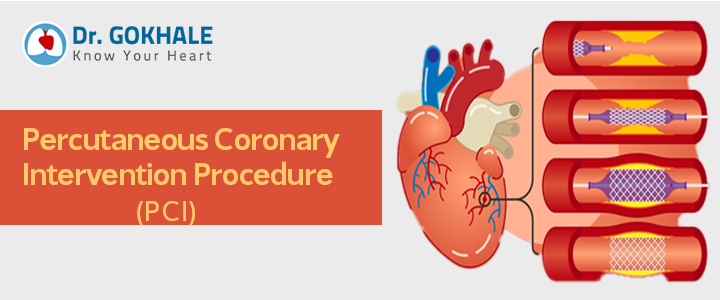Percutaneous coronary intervention (PCI) is a minimally invasive non-surgical procedure that is used to treat coronary artery diseases. But what exactly happens in a PCI and how does it help improve the blood flow?
With the inputs from the best heart transplant surgeon in Hyderabad Dr Alla Gopala Krishna Gokhale we answer these questions in this blog here:
What is a PCI?
Percutaneous Coronary Intervention (PCI) also called angioplasty with a stent, is a non-surgical procedure that is used to open up the closed blood vessels. While regular angioplasty uses a balloon to open up the blood vessels, PCI uses an additional stent to keep the blood vessels open. This procedure is performed to improve blood flow and reduce chest pain.
How is PCI performed?
PCI is performed using a catheter which is inserted into the blood vessels through either arm or groin. By leveraging an X-ray technique called fluoroscopy, the catheter is threaded near the blood vessels. The tip of the catheter is covered with a balloon & a mesh-shaped stent is placed near the coronary artery. The plaque in the vessels is compressed with the catheter tip and the balloon is inflated to place the stent in the vessel. The catheter is removed and the stent stays intact in the artery.
Common Types of Percutaneous Coronary Intervention Treatment in Hyderabad:
“However PCI procedure can vary with the individual needs of the patient. Different types of PCI procedures are performed based on the outcomes needed”, says the best heart transplant surgeon in Hyderabad Padma Shri awardee Dr Alla Gopala Krishna Gokhale.
Balloon Angioplasty:
A basic PCI procedure performed with a balloon and catheter tip that is described in the above procedure.
Angioplasty with Stent:
Angioplasty with a stent is similar to balloon angioplasty. In a few of these procedures, the stent is laced with a special coating that slowly releases the drugs that prevent the scar tissue growth for improved blood flow in the longer run.
Rotational Atherectomy:
Blockages are tough in a few cases due to calcification of the plaque in the blood vessels. Rotational atherectomy is a procedure where the catheter-based tool is used to drill out the plaque formed. This is an advanced producer where it only takes 5 minutes to remove the plaque and improve the blood flow.
Impella-supported PCI:
For a patient who suffers a high risk of complications during the procedure, a tiny medical device called an impella heart pump is inserted to ensure proper blood flow during the procedure.
That said only a qualified and experienced heart surgeon can recommend the right procedure for a specific patient. If you are in Hyderabad and are looking for consultation regarding Percutaneous Coronary Intervention Treatment in Hyderabad, Dr Alla Gopala Krishna is the best heart transplant surgeon with a remarkable track record in PCI procedures in Hyderabad. You can contact him here: 9603040506
 Ask Doctor
Ask Doctor
